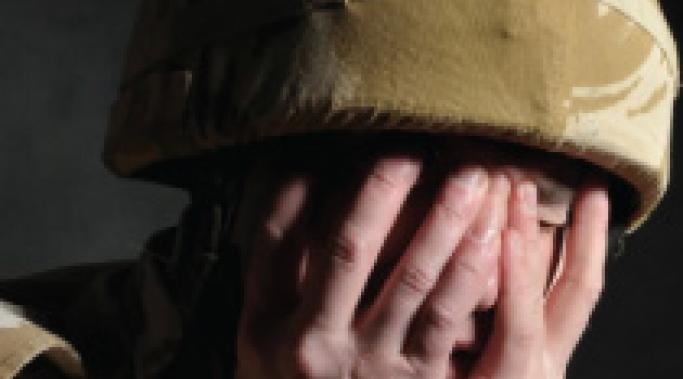Blogs
One of the most common symptoms of depression is a change in appetite. People who have depression either lose their appetite and eat less than they did before, or else their appetite increases and they eat more than they did before their depression started (Depression Symptoms: What Are Symptoms of Depression?). For me, my appetite has lessened but it's affected me a lot more than a simple reduction of hunger pangs. Depression and lack of appetite can be distressing.
Living with generalized anxiety disorder or social anxiety disorder can be frustrating. (And isn't that the understatement of the century?) We work hard to rid ourselves of anxiety, reading articles and books, participating in conversations, learning techniques to fill our anxiety toolboxes, seeing therapists, and more. Take heart: these things work and anxiety can disappear. It's a process, though, and not a quick one. What can we do to get by while we are working on diminishing our anxiety?
There is a prevalent, and false, assumption that all veterans have posttraumatic stress disorder (PTSD), or, perhaps, all veterans who have experienced combat suffer from combat PTSD. This, though, is not the case. A recent study of United States veterans now shows quite clearly that while the rate of PTSD in veterans is high, the PTSD rate in veterans is not nearly as high in all populations.
Feeling misunderstood is one of the most difficult and painful things for people with mental illness. It’s difficult for most everyone, but sometimes our mental illness can make the misunderstanding even more complicated and can even contribute to mental health stigma. Has it ever happened to you? Some event transpires and you are clearly misunderstood by another person, or a group of people? Have you experienced a misunderstanding that has contributed to mental health stigma?
Anxiety is debilitating and sometimes we feel stuck in anxiety but it doesn’t prevent a person from knowing what they want to do. I liken this to a car being stuck in the mud. The car is legitimately stuck, but the driver doesn’t want it to be. The driver is doing everything possible to free the car, so it can move again. Anxiety is a lot like that – trying to free ourselves from being stuck in anxiety – but the wheels keep spinning.
Last week, I discussed the good, the bad and the ugly of what my stay at a psych hospital was like. While my experiences at were both good and bad, I did learn from my stay at the psych hospital.
I have been diagnosed with schizoaffective disorder. But that wasn’t always the case. I was originally diagnosed with schizophrenia. So what does it mean to have schizoaffective disorder versus schizophrenia? For me, it’s meant a long learning curve that was frightening, confusing and reeling in meds changes. My doctor now focuses on symptoms rather than a hard and fast diagnosis. Still, some understanding the differences between schizophrenia and schizoaffective disorder is helpful to me and my family.
Feeling powerless or lacking control hurts your self-esteem and it interferes with your quality of life. However, it doesn’t have to be this way. While you can’t always control your circumstances, you can certainly change your actions or thoughts about a situation. You have much more power than you realise and it’s up to you to take control of your life.
One book every person with a trauma-related mental illness should have is, I Can't Get Over It by Dr. Aphrodite Matsakis. In the book, Matsakis talks about "victim thinking," a common reaction for trauma survivors. "Victim thinking reflects the feelings of hopelessness, helplessness, defilement, and betrayal often experienced during trauma and afterwards," she writes. "It can include the low self-esteem that often results from self-blame, survivor guilt, and societal stigmatization."
We are all unique but low self-esteem signs can look similar in most people. Regardless of our differences, those of who struggle with low self-esteem react to similar situations and have many of the same negative thinking patterns. Although these six signs of low self-esteem aren't the only ones to look out for, they are very common for those who are suffering from low self-esteem.









I believe she will only be able to rid herself of her demons, and hopefully her BPD as well, when she's ready to confront the abuse of her father. If she can put the blame where it belongs, she may stop projecting that victim/perpetrator cycle on the present men in her life. These demons are a metaphor for the purgatory she has created for herself. That reality has consequences in the real world, but it need not be real in the tangible sense. Exorcising her demons will require the expenditure of real physical energy and probably the destruction of aspects of her personality. If this ever happens, and it's possible but not probable, then these demons will evaporate. They are only as real as one's personality is real. In short, reality is not the question, it's what you make of the things you feel to be real.